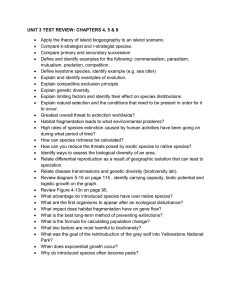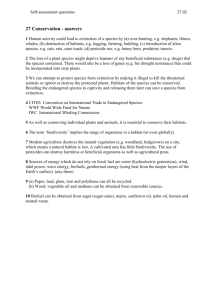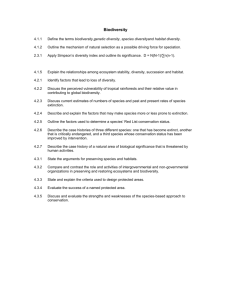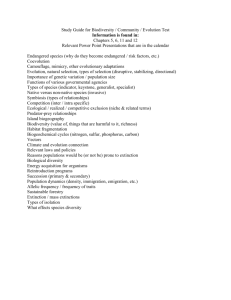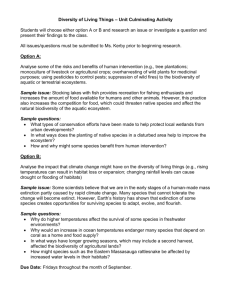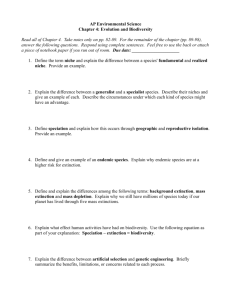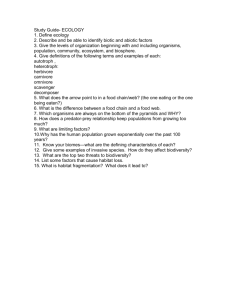Unit 7.2 Extinction and Biodiversity Loss Student Lecture Note Sheet
advertisement
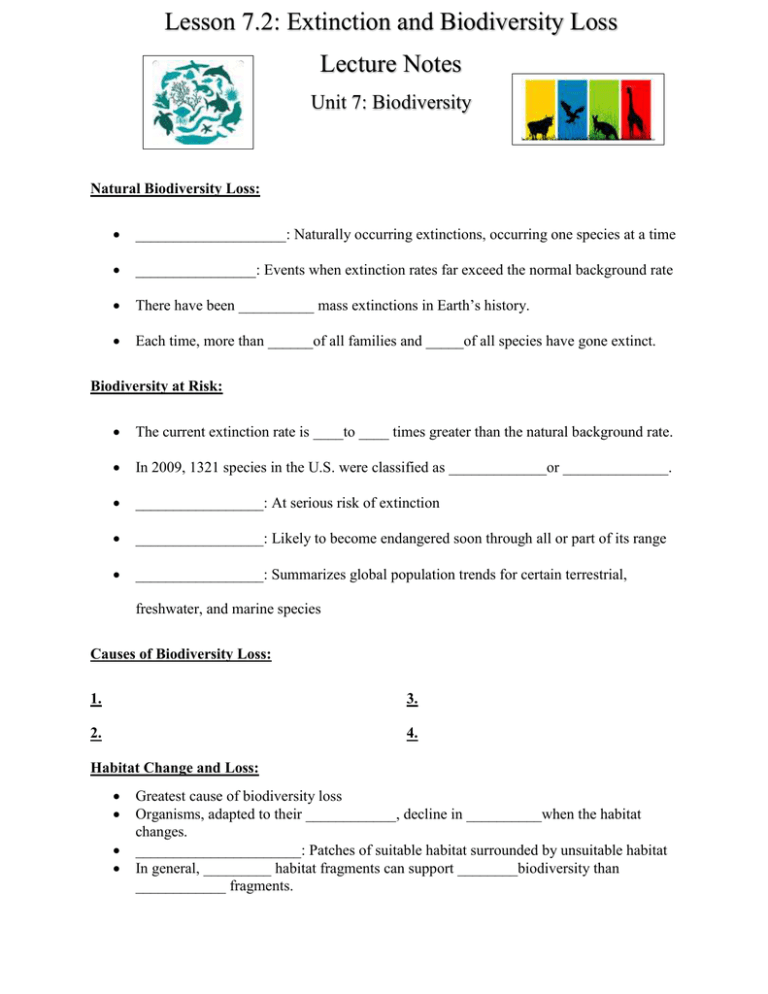
Lesson 7.2: Extinction and Biodiversity Loss Lecture Notes Unit 7: Biodiversity Natural Biodiversity Loss: ____________________: Naturally occurring extinctions, occurring one species at a time ________________: Events when extinction rates far exceed the normal background rate There have been __________ mass extinctions in Earth’s history. Each time, more than ______of all families and _____of all species have gone extinct. Biodiversity at Risk: The current extinction rate is ____to ____ times greater than the natural background rate. In 2009, 1321 species in the U.S. were classified as _____________or ______________. _________________: At serious risk of extinction _________________: Likely to become endangered soon through all or part of its range _________________: Summarizes global population trends for certain terrestrial, freshwater, and marine species Causes of Biodiversity Loss: 1. 3. 2. 4. Habitat Change and Loss: Greatest cause of biodiversity loss Organisms, adapted to their ____________, decline in __________when the habitat changes. ______________________: Patches of suitable habitat surrounded by unsuitable habitat In general, _________ habitat fragments can support ________biodiversity than ____________ fragments. Invasive Species, Pollution, and Overharvesting: Invasive species can out-compete and displace native species. Harmful chemicals and materials that make their way into habitats can poison people and wildlife. Occasionally, species can be driven toward extinction by hunting or overharvesting by humans. o Examples include:_________________________________________ Climate Change: Increasingly becoming a factor in biodiversity loss Unlike the other factors, climate change will have a ______________________________________________________________________. THINK.PAIR.SHARE NOTE SECTION: THINK: Suppose someone tells you that human development increases biodiversity. When a forest is fragmented, he or she argues, new habitats, such as grassy lots and gardens, may be introduced to an area and allow additional species to live there. How would you respond to this claim? Do you agree? Explain your answer. ______________________________________________________________________________ ______________________________________________________________________________ ______________________________________________________________________________ ______________________________________________________________________________ ______________________________________________________________________________ ______________________________________________________________________________
